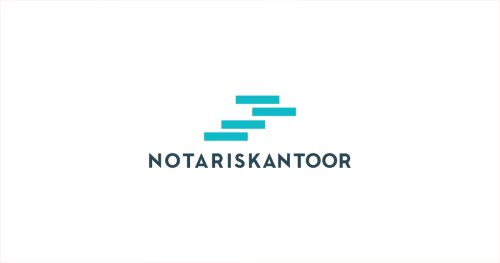Best International Trade Law Lawyers in Hechtel-Eksel
Share your needs with us, get contacted by law firms.
Free. Takes 2 min.
List of the best lawyers in Hechtel-Eksel, Belgium
About International Trade Law in Hechtel-Eksel, Belgium
International Trade Law in Hechtel-Eksel, Belgium, is part of a broader legal framework that governs the exchange of goods, services, and capital across international borders. While Hechtel-Eksel is a small municipality in the province of Limburg, companies and individuals operating here are subject to both Belgian national laws and European Union (EU) regulations when engaging in international trade. This field of law covers areas such as customs regulations, import and export controls, trade agreements, tariffs, product standards, and dispute resolution. With the globalized economy, businesses in Hechtel-Eksel may find themselves navigating complex legal environments when dealing with foreign partners or regulations.
Why You May Need a Lawyer
There are various scenarios where seeking legal advice in International Trade Law becomes essential for residents or businesses in Hechtel-Eksel, such as:
- Starting import or export activities and needing guidance on compliance with customs laws
- Facing difficulties with international contracts or disputes with foreign partners
- Understanding and managing tariffs, duties, or quotas on goods
- Navigating EU or Belgian regulations concerning sanctioned countries or restricted goods
- Seeking protection for intellectual property rights in international markets
- Adhering to product standards and safety requirements enforced by both Belgium and the EU
- Responding to anti-dumping complaints or other trade defense measures
- Ensuring correct tax treatment and VAT compliance in cross-border transactions
Given the complex and evolving nature of international trade law, a specialized lawyer can be indispensable in avoiding costly mistakes and ensuring smooth international operations.
Local Laws Overview
In Hechtel-Eksel, the legal framework for international trade is influenced primarily by three levels of regulation:
- Belgian National Laws: Belgium adopts and enforces customs and excise laws, national trade regulations, and commercial codes that affect import and export activities.
- EU Legislation: As a member of the European Union, Belgium must comply with the EU’s customs union, import and export restrictions, trade agreements, product safety standards, and sanction regimes.
- International Agreements: Belgium is a member of the World Trade Organization (WTO) and is bound by its multilateral rules. Bilateral and regional trade agreements can also apply depending on trading partners.
Businesses in Hechtel-Eksel must ensure compliance with customs declaration requirements, respect for export controls (especially dual-use and military goods), and proper labeling and documentation of products. Understanding VAT payable on international transactions and working with proper incoterms in contracts is also crucial.
Frequently Asked Questions
What is international trade law?
International trade law refers to the set of rules, agreements, and laws that govern the exchange of goods and services across national borders. It includes customs regulations, trade agreements, import-export controls, tariffs, and dispute resolution mechanisms.
Does Belgium have specific import and export rules I should know about?
Yes, Belgium enforces national customs rules supplemented by EU regulations. Products must meet safety standards, be accompanied by the correct documentation, and, where necessary, be subject to special import or export licensing.
Who needs to comply with international trade laws in Hechtel-Eksel?
Any individual or business involved in importing or exporting goods and services to or from Belgium must comply with these laws. This applies to local companies, freight forwarders, and even individuals sending goods abroad for personal reasons.
What are customs duties and how are they calculated?
Customs duties are taxes applied to goods when they are imported into Belgium from outside the EU. The rate depends on the type of goods, their origin, and current trade agreements. Declarations must be detailed and accurate to avoid penalties.
How does the EU Customs Union affect businesses in Hechtel-Eksel?
The EU Customs Union means goods can be traded freely among member states without customs duties, but goods arriving from non-EU countries are subject to a common tariff. Businesses must ensure proper compliance at entry points and provide required documentation.
What happens if I do not comply with international trade regulations?
Non-compliance can lead to cargo seizure, fines, sanctions, or denial of export or import privileges. It is crucial to ensure all documents and legal requirements are met before trading internationally.
Are there restrictions on exporting technology or sensitive products?
Yes, certain goods and technologies (such as dual-use items or military equipment) are subject to controls. Exporting these without the correct licenses is a criminal offense.
What should I look for in an international sales contract?
Key elements include the governing law, payment terms, delivery conditions (incoterms), dispute resolution methods, and compliance with local and international regulations. Consult a lawyer to ensure contracts are enforceable and protect your interests.
How does VAT apply to international sales and purchases?
VAT rules vary depending on whether goods are traded within the EU or with non-EU countries. Exports outside the EU may be zero-rated, while imports generally attract Belgian VAT. Accurate record-keeping and registration for VAT are essential.
Where can I get help resolving disputes with foreign partners?
Disputes can often be resolved through arbitration or mediation. Belgian courts may have jurisdiction in some cases, but contracts may specify foreign courts or arbitration centers. Legal assistance is important to navigate jurisdiction and enforce judgments.
Additional Resources
If you require more information or assistance, the following local and national organizations can provide guidance:
- Federal Public Service (FPS) Economy: For business and trade regulations
- Belgian Customs and Excise Administration: For customs procedures and tariffs
- Chamber of Commerce Limburg: Support for local businesses involved in international trade
- Embassies and Consular Offices: For export-import support in dealing with specific countries
- European Commission Directorate-General for Trade: For EU trade policies, sanctions, and regulations
Next Steps
If you are planning to engage in or expand your international trade activities in Hechtel-Eksel, it is advisable to:
- Assess your business needs and identify potential risks or compliance issues
- Contact a qualified lawyer specializing in International Trade Law to review your situation and provide tailored advice
- Gather all relevant documents relating to your trade activities, such as contracts, invoices, shipping records, and licenses
- Stay informed about ongoing regulatory changes at the national and EU levels
- Utilize local business support services and consult the recommended organizations listed above
Taking these steps will help you avoid legal pitfalls, enhance your business’s global operations, and ensure full compliance with the applicable laws and regulations governing international trade in Hechtel-Eksel, Belgium.
Lawzana helps you find the best lawyers and law firms in Hechtel-Eksel through a curated and pre-screened list of qualified legal professionals. Our platform offers rankings and detailed profiles of attorneys and law firms, allowing you to compare based on practice areas, including International Trade Law, experience, and client feedback.
Each profile includes a description of the firm's areas of practice, client reviews, team members and partners, year of establishment, spoken languages, office locations, contact information, social media presence, and any published articles or resources. Most firms on our platform speak English and are experienced in both local and international legal matters.
Get a quote from top-rated law firms in Hechtel-Eksel, Belgium — quickly, securely, and without unnecessary hassle.
Disclaimer:
The information provided on this page is for general informational purposes only and does not constitute legal advice. While we strive to ensure the accuracy and relevance of the content, legal information may change over time, and interpretations of the law can vary. You should always consult with a qualified legal professional for advice specific to your situation.
We disclaim all liability for actions taken or not taken based on the content of this page. If you believe any information is incorrect or outdated, please contact us, and we will review and update it where appropriate.









